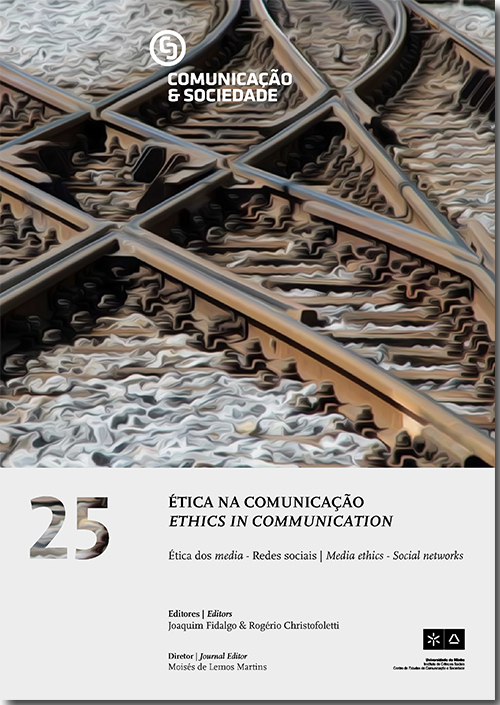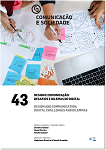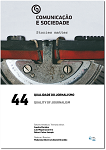Beyond propaganda and the Internet: the ethics of journalism
DOI:
https://doi.org/10.17231/comsoc.25(2014).1876Palavras-chave:
Propaganda, internet, journalism, ethicsResumo
According to Herman and Chomsky’s “propaganda model”, the information conveyed by the news media is largely determined, both with regard to the agenda-setting and the framing of the news, by the “persuasion industries”. Unlike those media, the Internet offers, at least for now, the possibility that different, alternative voices of citizens and civic and non-governmental organizations are freely heard. At the same time, the Internet challenges the monopoly of traditional news media to offer relevant, credible information. This possibility of citizens and organizations to use Internet to oppose to propaganda is, probably, one of the causes of the current crisis of journalism. The survival of journalism to this crisis lies not in forgetting its ethics but rather in the systematic and consistent reaffirmation of that ethics. Thus, ethics reveals itself as a necessary condition, even if not a sufficient one, to the pragmatic success of journalism.
Downloads
Downloads
Publicado
Como Citar
Edição
Secção
Licença
Os autores são titulares dos direitos de autor, concedendo à revista o direito de primeira publicação. O trabalho é licenciado com uma Licença Creative Commons - Atribuição 4.0 Internacional.














